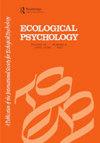Emotional Processes of Foreign-Language Learning Situated in Real-Time Teacher Support
IF 1.7
3区 心理学
Q3 PSYCHOLOGY, EXPERIMENTAL
引用次数: 28
Abstract
Abstract The dynamic turn in the field of psychology of foreign-language learning has inspired researchers to capture the nitty-gritty dynamics of development in inter- or intraindividual variables. Despite the growing number of techniques for analyzing dynamics, there is still a need for techniques that capture how intraindividual dynamics are situated in a changing context. One of the techniques that can contribute to this knowledge is a clustering technique called Kohonen’s Self-Organizing Maps (SOM). In this study, we aimed to explore the intraindividual process of foreign-language enjoyment and foreign-language classroom anxiety in alignment with teachers’ level of emotional support during teacher-student interactions for two dyads. The findings indicated the emergence of recurring patterns of teacher support, and student anxiety and enjoyment. These patterns highlight the self-organizing nature of these teacher-student interactions, the bidirectional nature of this process, and, in general, the notion of teachers and students as dynamic systems. Moreover, the specific nature of the emergent patterns suggests that the traditional positive association between teacher support and student affect may (mostly, but not always) be generalized to real-time and real-life processes. And finally, our results point toward the importance of the student in determining the affective nature of the interactions from moment to moment.教师实时支持下外语学习的情感过程
外语学习心理学领域的动态转变激发了研究者们在个体间或个体内部变量中捕捉发展的本质动态。尽管分析动态的技术越来越多,但仍然需要捕捉个体内部动态在不断变化的环境中如何定位的技术。其中一种可以帮助我们了解这些知识的技术是一种称为Kohonen自组织地图(SOM)的聚类技术。在本研究中,我们旨在探讨在师生互动中,教师情绪支持水平对外语课堂焦虑和外语享受的影响。研究结果表明,教师的支持和学生的焦虑和享受出现了反复出现的模式。这些模式突出了师生互动的自组织性质,这一过程的双向性质,以及教师和学生作为动态系统的概念。此外,涌现模式的特殊性表明,传统的教师支持和学生影响之间的积极联系可能(大部分,但并不总是)被推广到实时和现实生活的过程中。最后,我们的结果指出了学生在决定每时每刻的互动的情感性质方面的重要性。
本文章由计算机程序翻译,如有差异,请以英文原文为准。
求助全文
约1分钟内获得全文
求助全文
来源期刊

Ecological Psychology
PSYCHOLOGY, EXPERIMENTAL-
CiteScore
3.30
自引率
10.50%
发文量
8
期刊介绍:
This unique journal publishes original articles that contribute to the understanding of psychological and behavioral processes as they occur within the ecological constraints of animal-environment systems. It focuses on problems of perception, action, cognition, communication, learning, development, and evolution in all species, to the extent that those problems derive from a consideration of whole animal-environment systems, rather than animals or their environments in isolation from each other. Significant contributions may come from such diverse fields as human experimental psychology, developmental/social psychology, animal behavior, human factors, fine arts, communication, computer science, philosophy, physical education and therapy, speech and hearing, and vision research.
 求助内容:
求助内容: 应助结果提醒方式:
应助结果提醒方式:


